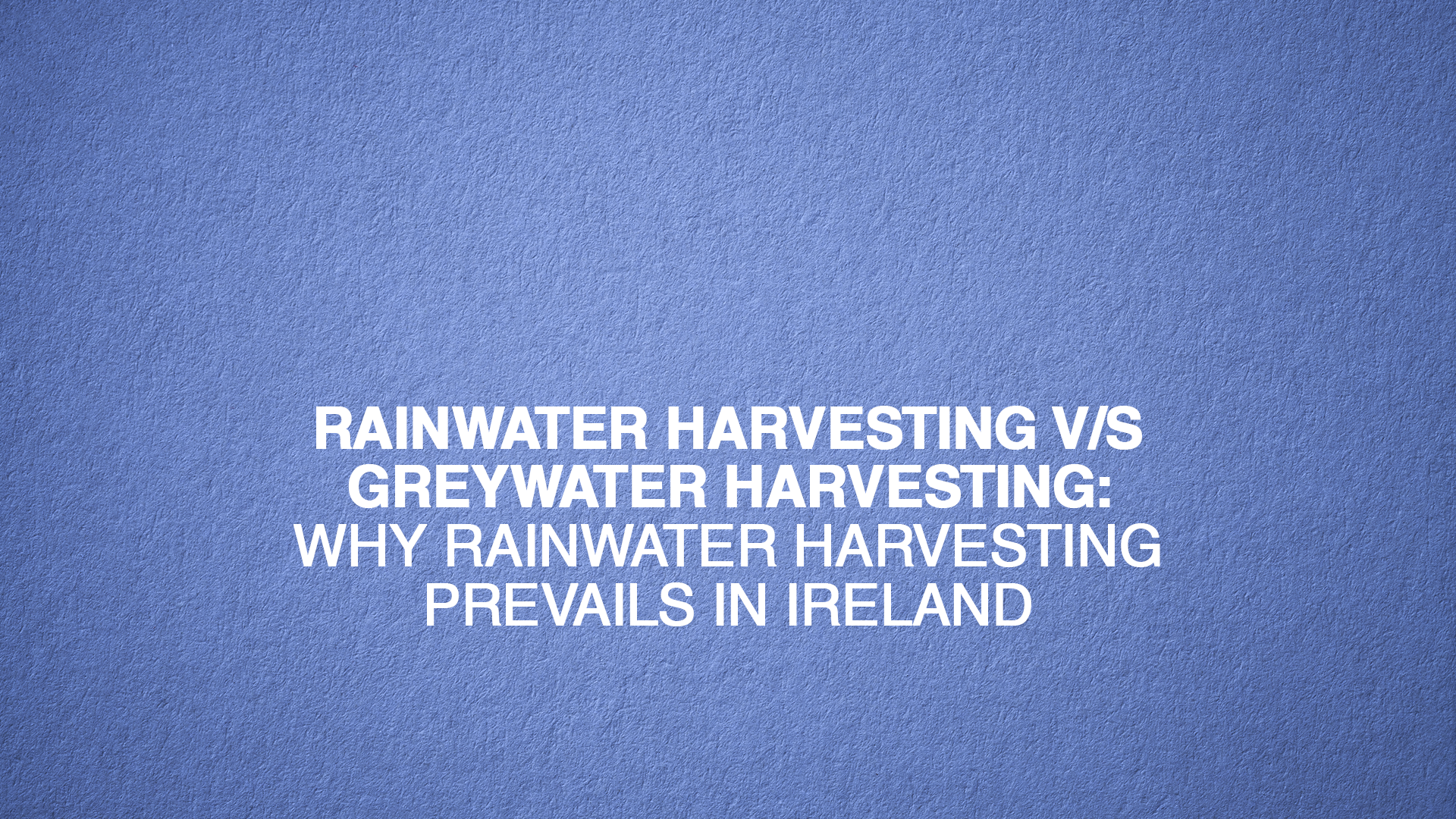
Free Delivery Throughout Ireland

Easy Installation


These two are often confused with each other, but let’s remember, they are not the same. Rainwater harvesting and greywater harvesting both share a common aim – that of reusing water. Both technologies work to reduce the reliance on mains water but the methods, results, and applications can differ greatly.
At Rainwater Harvesting Systems Ireland, we have explained in detail the difference between the two. We will also evaluate why rainwater harvesting is better recommended for Ireland.
Just as the name suggests, rainwater harvesting is about rainfall. The rainwater can be collected from any open space on or around a building. It could be the roof of your home or your car park. The collected water is then filtered into a storage tank, which can be pumped on demand through easy-to-install filters. It might also possibly be disinfected, to the point of use.
On the other hand, greywater recycling involves reusing domestic wastewater that is usually sourced from washing machines, baths, and sinks. The wastewater undergoes a series of filtration stages, as well as chemical disinfectant to ensure it is fit for use.
By capturing rainwater from rooftops, this method reduces reliance on mains water for various non-potable uses. Rainwater proves invaluable for tasks where its purity ensures efficient and hygienic operations. Its softness also makes it perfect for washing machines, preventing limescale buildup and ensuring clean laundry. Gardens thrive with rainwater. The lack of chemicals and contaminants in rainwater promotes healthy plant growth. These systems align seamlessly with Ireland’s moderate climate and consistent rainfall. They require minimal maintenance while significantly cutting water bills and promoting sustainability.
On the other hand, while greywater recycling is common for toilet flushing in Ireland, its broader applications require more caution. Greywater, sourced from sinks and showers, can reduce fresh water demand but must be carefully managed for garden irrigation due to potential contaminants. Regulatory challenges also highlight the need for prudence. In contrast, rainwater harvesting offers a clear path to efficient water management.
When comparing rainwater harvesting and greywater harvesting in the context of Ireland, rainwater harvesting emerges as the superior choice. Its abundant availability, superior water quality, versatility and economic viability. The government’s support makes rainwater harvesting the optimal solution for addressing water scarcity. As leading providers of rainwater harvesting in Ireland, we can offer you the most suitable system in accordance to your household and industry need.
This way you can contribute to a sustainable water future while enjoying Ireland’s reliable, economical, and safe water source.